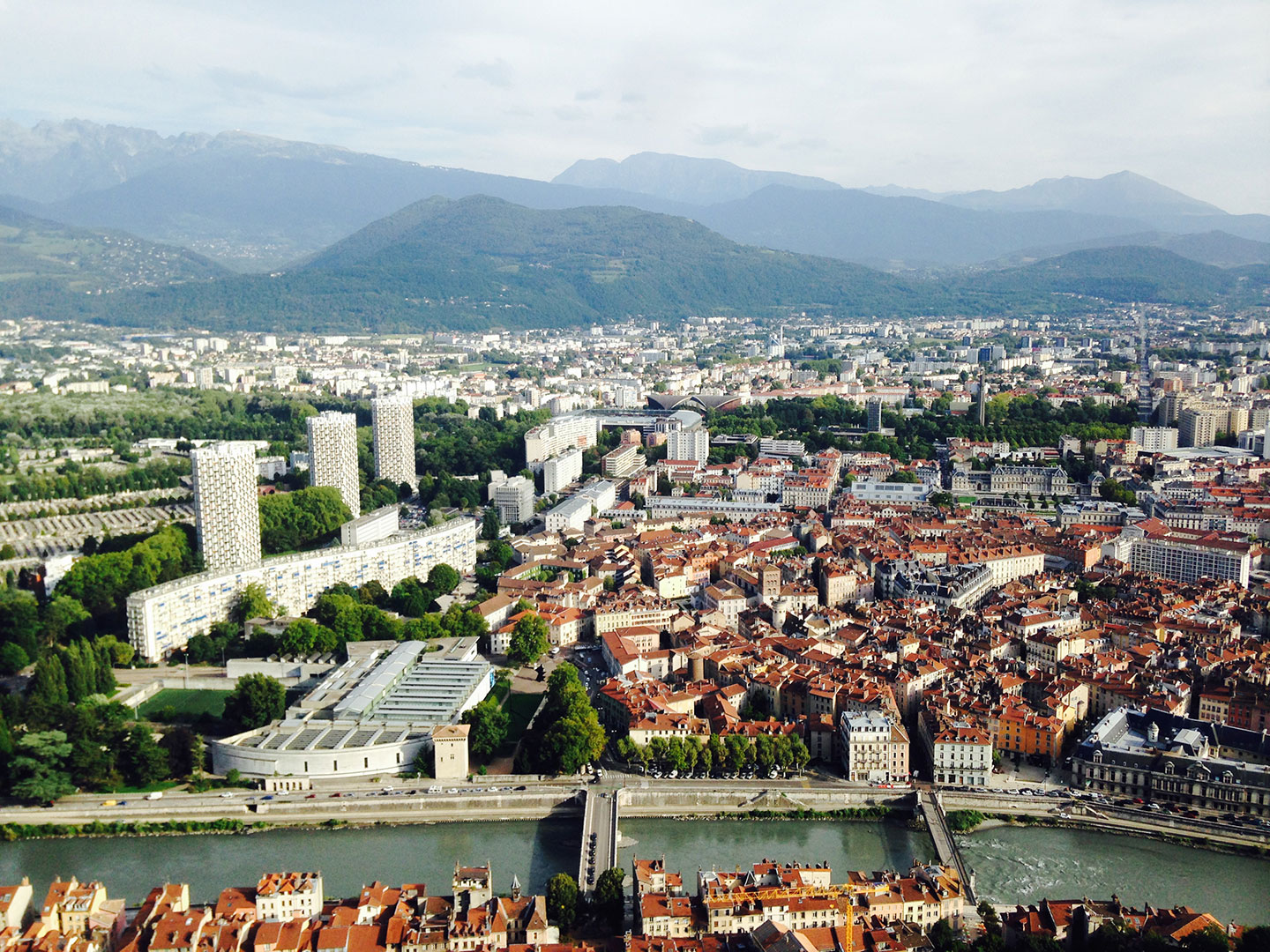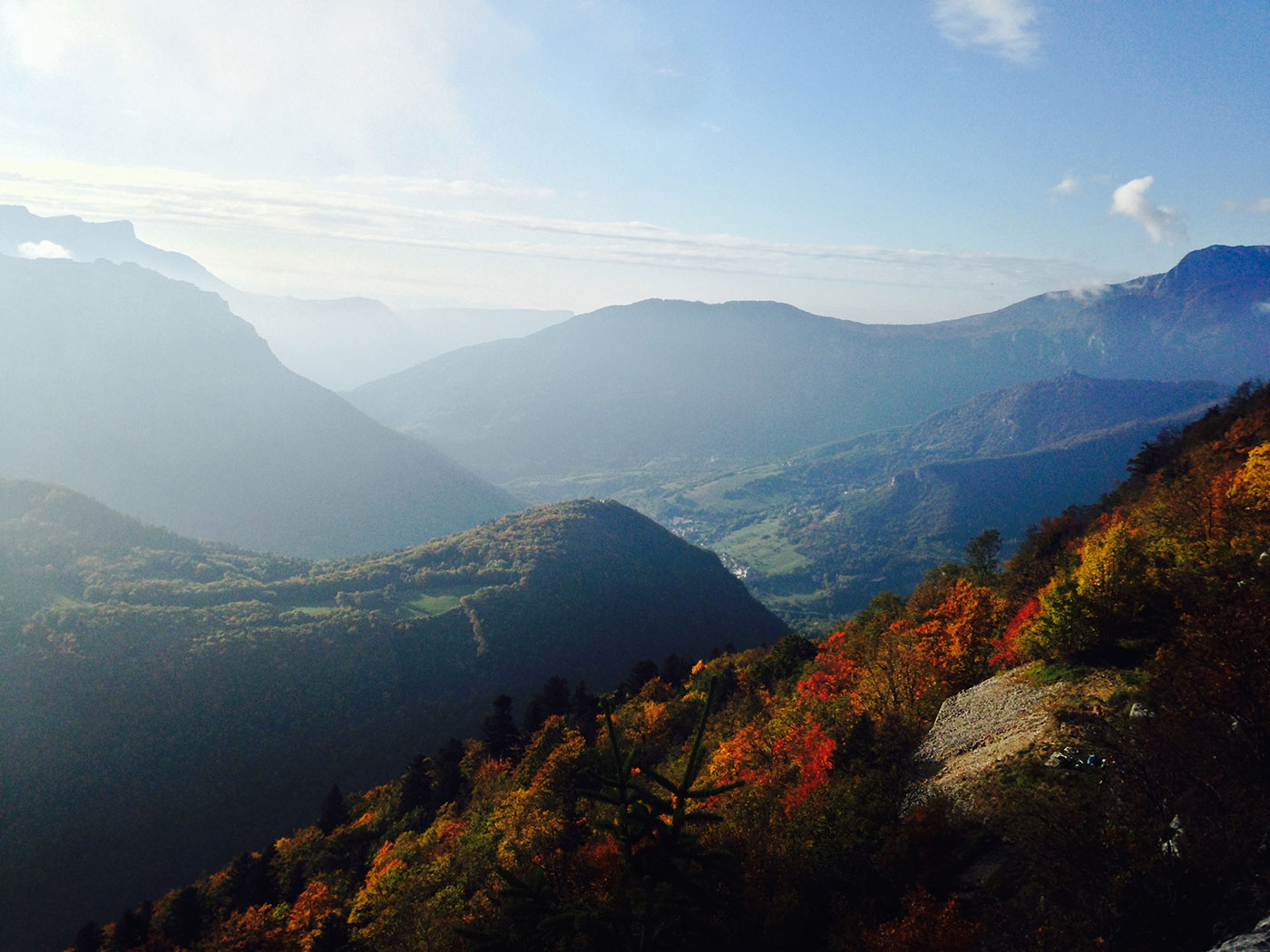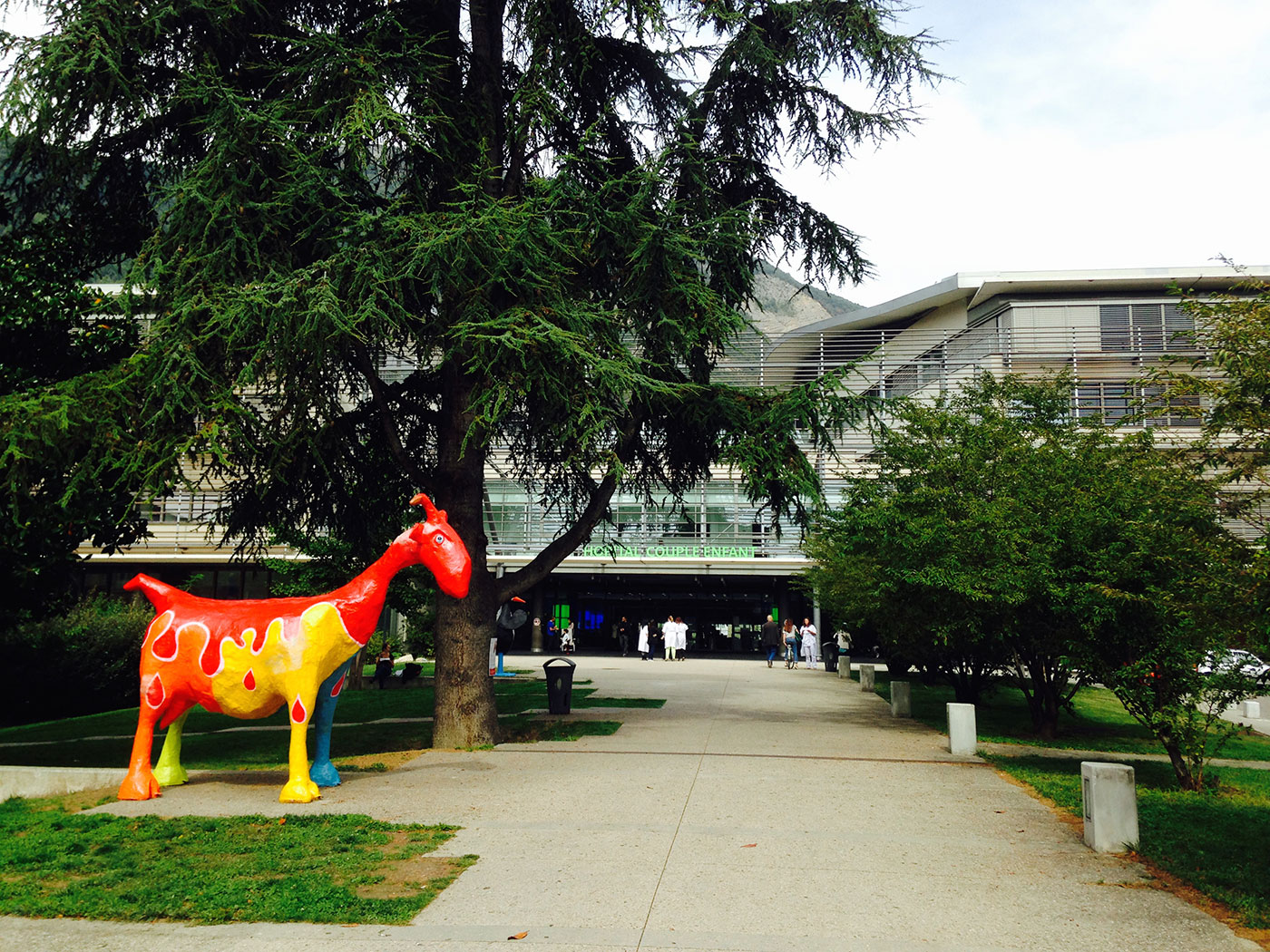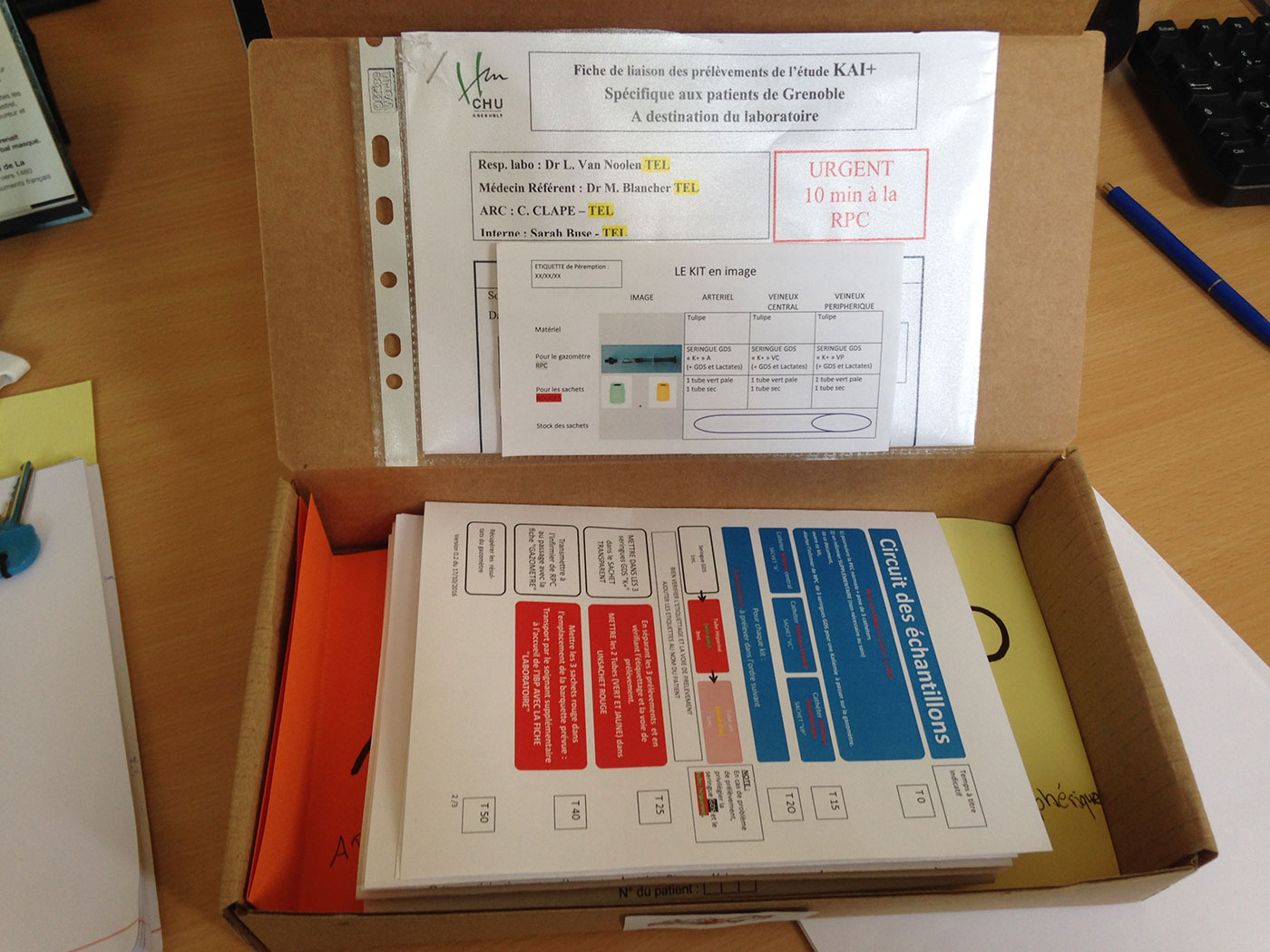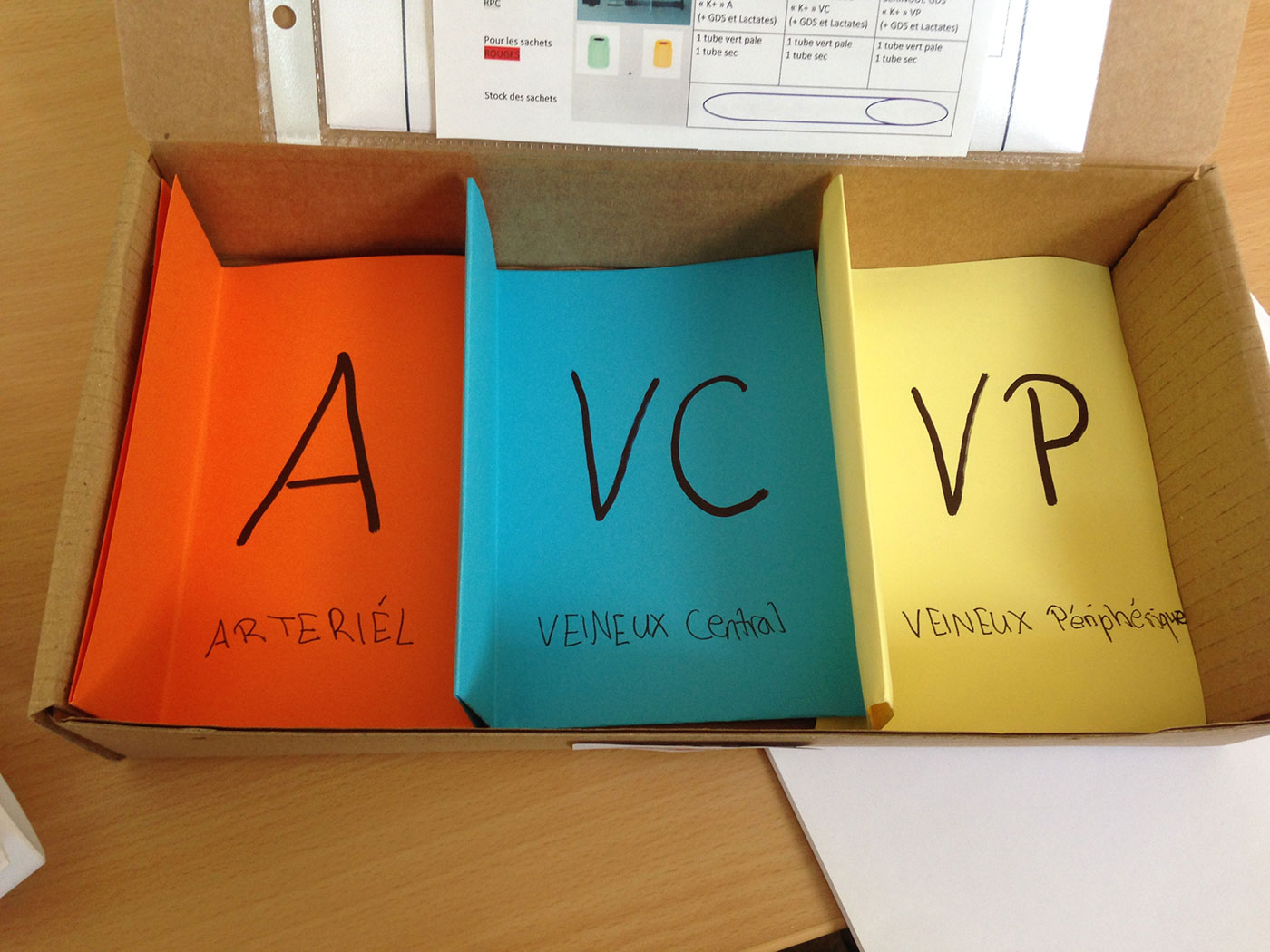Photos: Sarah Buse
Sarah Buse, young researcher from Cologne, is currently undertaking research work in Grenoble in the area of mountain rescue. She is evaluating potassium levels in the blood of avalanche victims. Her story teaches us that adhering to your goals is really worthwhile.
After my Erasmus semester in Grenoble, France, I was sure of one thing: I’ll be back! But just quite HOW wasn’t yet clear to me. More or less by chance I met the Research Manager of the University of Cologne on the day of my debriefing at the Centre for International Relations of the Faculty of Medicine after my semester abroad. I had already enquired beforehand whether it was possible to do a doctorate abroad since I’ve always been very keen on international projects. His answer made me get started on my project more seriously: “The University of Cologne is very interested right now in helping students to get involved in research partnerships with universities abroad!”
The perfect dissertation: Exciting, useful and multinational
During an internship in France with the local emergency services I had met a doctor who stood out from the crowd through his tremendous dedication and expertise in the area of mountain rescue. When I wrote to him two months later and told him I was interested in writing my dissertation, he was pleasantly surprised and able to suggest a topic for me. My theme is the evaluation of potassium levels in hypothermia victims, caused in most cases through an avalanche. For me personally the perfect topic for a dissertation: Exciting, useful and then again multinational through cooperation with Switzerland. My love of the mountains had grabbed me during my semester abroad and that was why a dissertation on mountain rescue seemed a logical step in preparation of my future career path.
The challenge of finding backers
What then followed was three tough months. For a long time it wasn’t clear whether going back to France would really work out. First of all I couldn’t find a supervisor. When I then met Professor Annecke, a highly dedicated scholar in the field of experimental anaesthesia, he immediately pointed out the obvious weak points in my project: low number of case studies, binational supervision which would be difficult to organize, unreliable data since my research would be dependent on the weather... My French supervisor also seemed more inclined to pressurize rather than help me. He later explained that he had wanted to test me a little bit to see how hard I was prepared to work for my doctorate. I wasn’t aware that there had been lots of obstacles on the French side too prior to my arrival, which Dr. Blancher had removed for me, and that he had vouched for my suitability towards the emergency services.
Good preparation all round before research can start
Mid July it was finally clear: I’m going to France in August. Relief was mixed with anxiety and a sense of expectation; after all, I had rejected promising other projects which would have been far easier to master.
I’ve been here for three months now, we’ve written the study protocol together, the application for ethics approval is in the process of being submitted and I’m getting everything ready which I need for the study, such as equipment for taking blood samples, posters, presentations… In November I’ll accompany Dr. Blancher to a conference in Switzerland on the topic of hypothermia where I’ll also meet the doctors from the other centres.
Different country, different research: A change in perspective
The key question when considering whether to do your doctorate at home or abroad should always be: Are you being given an opportunity to do a doctorate abroad which you would not otherwise have at home?
Living in another country is always enriching. For me, even how SAMU, the French emergency services, is structured is something new. A hospital-based rescue service provides teams of nursing staff, doctors and specially trained ambulance drivers and has a completely different approach to emergency services. In this way, I can profit from everything I experience here, which will hopefully help me to question structures back home a little more critically and identify scope for change and improvement. In my opinion, this is one of the most interesting aspects. Things seem logical out of habit, only a comparison with other possible approaches and solutions makes you start thinking.
Soon the first snow will arrive, the first rescue missions will take place and I’ll be back on my skis! And in two years I’ll know whether my research was successful!
